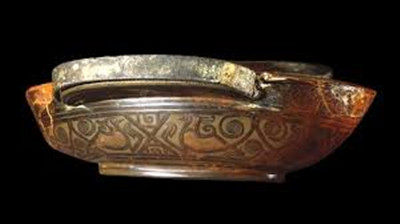Throughout history, as any anthropologist will tell you, the simplest way to bind people to you has been to give them a special gift-a present that only you can give, and only they are worthy to receive; a present like the object in this programme.

您現在的位置: 首頁 > 英語聽力 > 英語視頻聽力 > 紀錄片 > BBC記錄片《百件藏品話滄桑》 > 正文

Throughout history, as any anthropologist will tell you, the simplest way to bind people to you has been to give them a special gift-a present that only you can give, and only they are worthy to receive; a present like the object in this programme.

| 重點單詞 | 查看全部解釋 | |||
| prestige | [pres'ti:ʒ] |
想一想再看 n. 威望,聲望 |
聯想記憶 | |
| military | ['militəri] |
想一想再看 adj. 軍事的 |
聯想記憶 | |
| imperial | [im'piəriəl] |
想一想再看 adj. 帝國(王)的,至尊的,特大的 |
||
| vast | [vɑ:st] |
想一想再看 adj. 巨大的,廣闊的 |
||
| boundary | ['baundri] |
想一想再看 n. 分界線,邊界 |
||
| threat | [θret] |
想一想再看 n. 威脅,兇兆 |
||
| extended | [iks'tendid] |
想一想再看 adj. 延續的,廣大的,擴大范圍的 動詞extend的 |
||
| loyalty | ['lɔiəlti] |
想一想再看 n. 忠誠,忠心 |
聯想記憶 | |
| survive | [sə'vaiv] |
想一想再看 vt. 比 ... 活得長,幸免于難,艱難度過 |
聯想記憶 | |
| severe | [si'viə] |
想一想再看 adj. 劇烈的,嚴重的,嚴峻的,嚴厲的,嚴格的 |
聯想記憶 |
